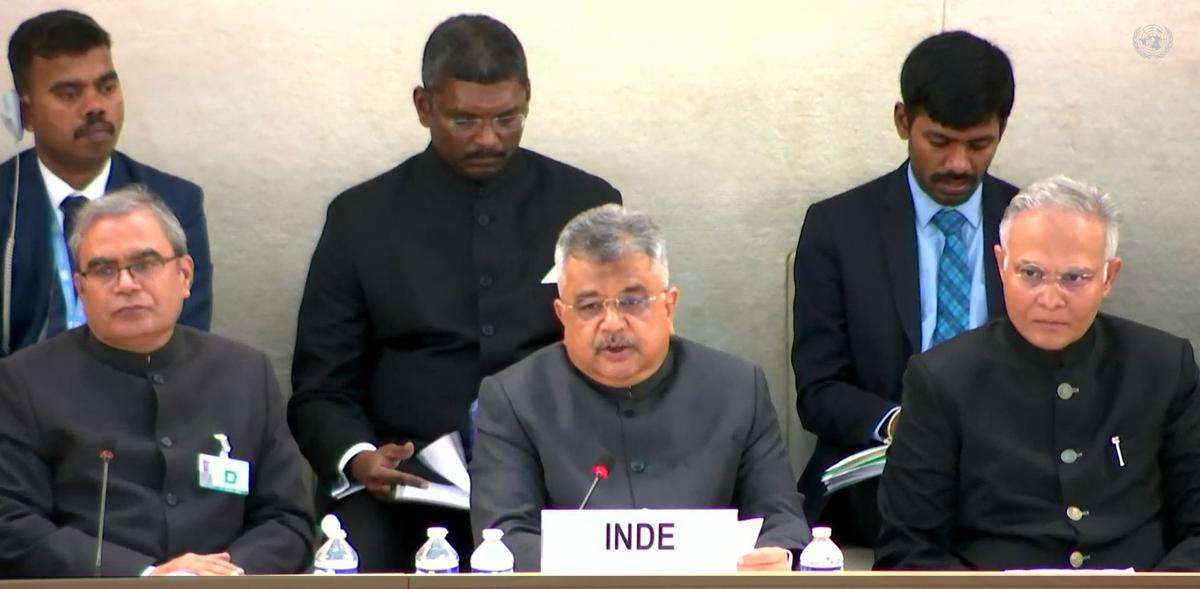Solicitor General of India Tushar Mehta while addressing the United Nations Human Rights Council (UNHRC) in Geneva said that the Citizenship Amendment Act (CAA) 2019 reaffirms India’s commitment to the welfare of persecuted minorities in the neighboring countries.
“The CAA is a limited and focused legislation, which reaffirms India’s commitment to the welfare of persecuted minorities in the region”, Mehta said.
“The criteria defined here is specific to India and its neighborhood and takes into account the historical context and the current ground realities”, he said.
Mehta further said the CAA is aimed at enabling the persecuted minorities from Pakistan, Bangladesh, and Afghanistan; belonging to Hindu, Sikh, Buddhist, Jain, Parsi, and Christian communities; who have migrated to India owing to their religious persecution in those countries to obtain Indian citizenship.
“It will help in reducing their statelessness and would enable beneficiaries to have a more secured and dignified life. This Act neither takes away the citizenship of any Indian citizen nor amends nor abridges any existing process for acquiring Indian citizenship by any foreigner of any country belonging to any faith or religion,” Mehta said.
Mehta on November 10 was defending India’s stand at the UNHRC where some member states were raising concerns over the CAA and alleged that human rights violations were happening in India during the universal periodic review of India’s human rights record.
Greece, the Netherlands, Germany, and the Vatican City during the fourth round of the review called upon the Government of India to ensure freedom of religion. The nations also asked India to stop ‘discrimination’ against ‘human rights activists’ and religious minorities.
“Immediately release all human rights defenders,” the statement of the Netherlands said.
Germany in its statement said that the Foreign Contribution Regulation Act (FCRA) should not unduly restrict the freedom of association in India. The German representative called upon India to strengthen the National Human Rights Commission (NHRC).
“Germany remains concerned about the rights of marginalized groups, especially religious minorities as well as women and girls”, the statement of Berlin said.
“Ensure full implementation of freedom of religion”, the statement of the Greek representative said while calling upon India.
In defense of India, Mehta said that the Constitution of India guarantees every citizen the fundamental right to freedom of speech and expression.
“Like any other freedom, the freedom of speech and expression is not absolute in nature and is subject to reasonable restrictions in the interest of sovereignty and integrity of India, security of the state, friendly relations with the foreign state, public order, decency or morality, contempt of court, defamation, or incitement to an offense,” Mehta said.
“Imposing reasonable restrictions enables the state to regulate freedom of speech and expression when it amounts to hate speech or leads to incitement to an offense”, Mehta added.
“Actions were taken against some organizations due to their illegal practices including malafide re-routing of money and wilful and continuing violations of extant legal provisions, foreign exchange management rules and tax law of India,” Mehta further said.














